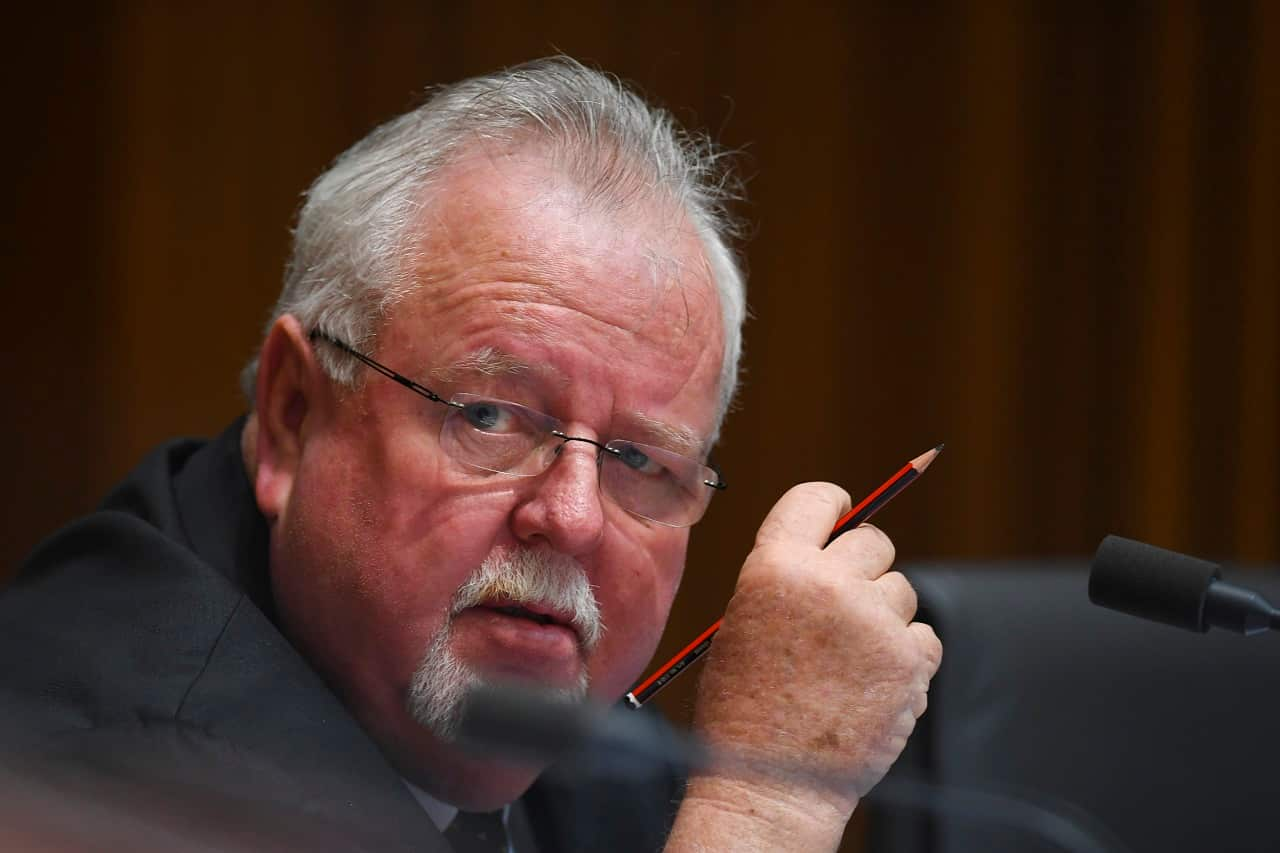Queensland Nationals senator Barry O'Sullivan says "some bloody old Chinaman" is more risk to Australia's biosecurity than levy-paying importers.
It was revealed at Senate estimates the Agriculture Department has received mostly negative feedback over the proposed Biosecurity Imports Levy, which would tax containers brought into the country.
"There's a bigger chance of us having a biosecurity breach from some bloody old Chinaman that brings in his favourite sausage down the front of his undies," Senator O'Sullivan said at Tuesday's hearing.
The new levy is due to start on July 1 and would be imposed on all cargo imported to Australia by sea, with the exception of military equipment.

It would be imposed on stevedores, with the initial rate set at $10.02 per incoming twenty-foot equivalent sea container and $1 per tonne for cargo not in a container.
Senator O'Sullivan said millions of people travelling across Australian borders were a higher risk than importers.
"I'm not opposed to a tax to raise money for biosecurity, but from those that pose a risk. So start with the Chinaman," he said.
Department officials said the passenger movement charge was in place to tax overseas visitors for moving around the country.
Petrol, cement and fertiliser imports were among the industries which would be most affected by the levy.
Biosecurity first assistant secretary Matthew Koval said it was clear no importers wanted to pay a new tax.
"The majority of our feedback has been negative feedback, there's no point in hiding that," Mr Koval said.
The levy is estimated to raise an average of $108 million a year to strengthen biosecurity.
But officials conceded the money would flow to consolidated revenue meaning the government isn't bound to spend it on biosecurity, despite already committing to spend $313 million over five years.
Labor's agriculture spokesman Joel Fitzgibbon said the opposition would support well-designed revenue measures to support biosecurity.
"But the government's chaotic approach is unfairly and unnecessarily causing grief and confusion across a whole range of industries," he said.
"It's also delaying the revenue stream and driving a lack of confidence the money will be used for its intended purpose."
Assistant Agriculture Minister Richard Colbeck indicated the coalition was open to overhauling the design of the tax.
"Are there are concerns about where it started and perhaps even where people might see it sits today? Absolutely there are, but those conversations continue," he said.
The department has committed to giving the government enough time to legislate the levy before the election, although it remains to be seen if it will get priority to pass parliament in time.

